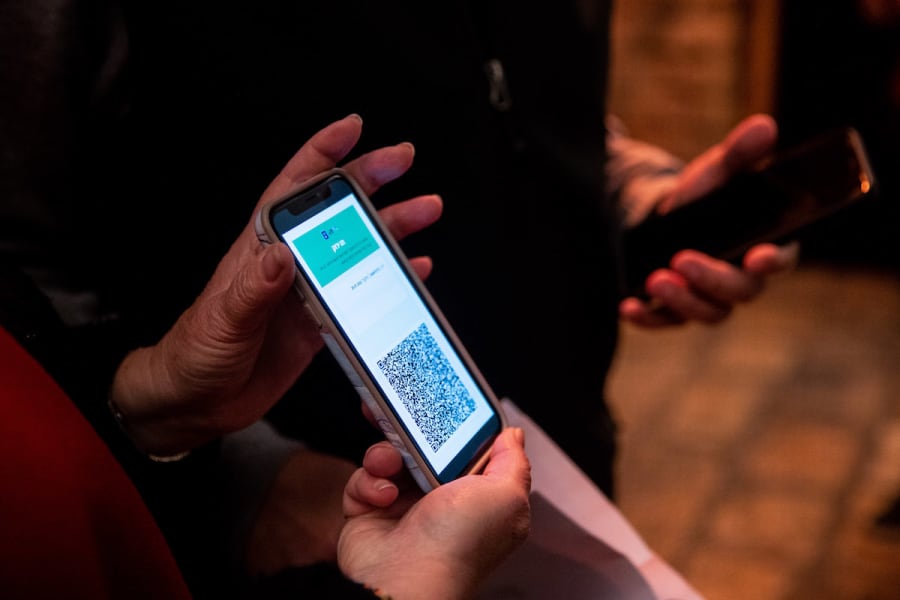Is Israel set to return the “green passport”?
Ministry of Health reportedly considering move as daily COVID cases jump over 300

COVID cases in Israel are on the rise, as are government fears that the highly-contagious Delta variant will endanger lives.
The Ministry of Health is now considering reinstituting the “green passport” system – whose restrictions were lifted on June 1 – according to recent media reports.
The “green passport,” a barcode authentication issued to citizens who have had two vaccine doses or to those who have recovered from the coronavirus, grants holders access to restaurants and indoor cultural events.
Health Ministry officials are also in discussions to reintroduce the controversial “purple badge” system which imposes certain requirements on businesses to allow them to operate.
While hospitalizations of COVID patients remains relatively low, Interior Minister Ayelet Shaked warns that Israel’s Ben-Gurion International Airport could stop allowing flights in and out of the country to keep the contagious variant from spreading.
“The situation at Ben-Gurion Airport is the central concern,” Shaked told reporters on location. “The simple solution is to close the airport. But the situation today is different than it was, and we’re trying to keep the airport open. But if morbidity rises, the flights will stop.”
New coronavirus cases are currently registering at approximately 300 per day, however, the Health Ministry is prepared for that figure to double, expecting 500 to 600 cases by next week as the Delta variant spreads across the nation. There are currently 26 people hospitalized in serious condition.
The Delta variant of the coronavirus – believed to be 40% more contagious than the original strain – was first identified in India and appears to bypass vaccines more easily, however, does not seem to cause serious infection among the vaccinated.
With case numbers rising, Israel reestablished the indoor mask mandate and has become stricter about passengers arriving from countries with high infection rates or breaking quarantine. The government, however, was hoping to avoid reinstituting many of the previous restrictions lifted two months ago.
Israeli Prime Minister Naftali Bennett made a direct appeal to young teens, aged 12 to 15, to get vaccinated against COVID.
“I know how much you want to enjoy the summer, and you will be able to,” Bennett said. “We do not want to impose any limits – not on parties, or trips or on anything,” but he added that people who are not vaccinated “are simply putting themselves and those around them in danger.”
His statement is part of a nationwide government campaign to vaccinate the younger age group, and has already seen the number of daily inoculations climb to over 10,000 for the first time since early April.
According to the Ministry of Health, as of Tuesday nearly 32% of Israelis ages 10-19 had received at least one dose of the vaccine, up from around 23% the week before.

The All Israel News Staff is a team of journalists in Israel.














